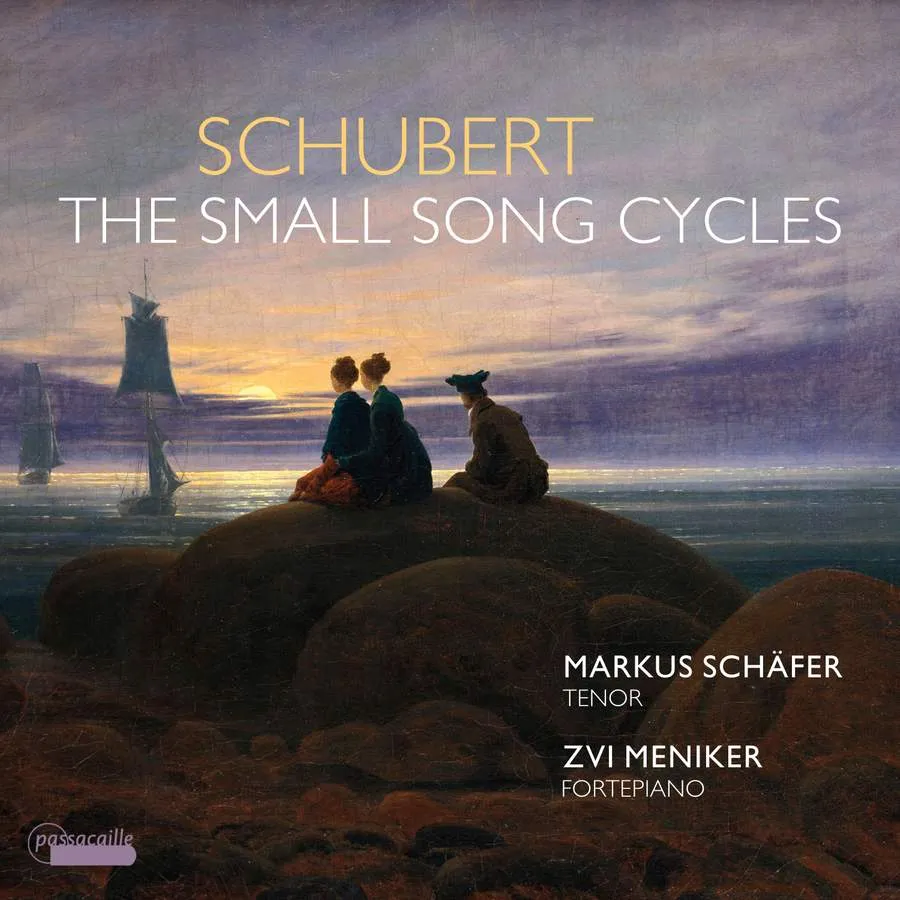
Schubert The Small Song Cycles: Drei Gesänge des Harfners aus ‘Wilhelm Meister’, D478; Fier Refrainlieder, D866 etc Markus Schäfer; Zvi Meniker Pasacaille PAS 1084 70:10 mins
Schubert would doubtless not have considered the six opus-numbered collections presented here as ‘cycles’. Published between 1821 and the year of his death, they range over no more than three to five songs apiece, some linked by poet, others a theme. But they disclose Schubert the anthologist, revealing carefully considered contexts for such evergreens as ‘Du bist die Ruh’, ‘Lachen und Weinen’ and ‘Rastlose Liebe’. The context, moreover, is enhanced by Markus Schäfer and Zvi Meniker’s determination to reignite the issue of performance practice that was a hot topic in Schubert’s Vienna. The composer’s great champion Johann Michael Vogl was famous for his freewheeling approach to the vocal lines, and Schäfer follows his example, underpinned by a fortepiano based on a model familiar to Schubert, its fruity lower register ensuring a rippling, wine-dark opening to ‘Lied eines Schiffers an die Dioskuren’.
Things certainly get off to a tumultuous start with a gloriously febrile ‘Rastlose Liebe’. Although uncomfortably challenged in the upper reaches of ‘Du bist die Ruh’, and momentarily effortful elsewhere, Schäfer’s lyric tenor is an ideal instrument for Schubert, marrying textual attentiveness and an innate sense of line whether dramatic or contemplative. ‘Der Wanderer an den Mond’ is suffused with an irresistible gemütlichkeit; ‘Bei dir allein’s restless energy is a match for ‘Rastlose Liebe’; and the tongue-in-cheekery of ‘Die Männer sind méchant!’ teases. Meniker is a mostly illuminating collaborator, but the introduction to ‘Du bist die Ruh’ emerges unaccountably dry and pedantic. A shame when telling insights otherwise pepper a thought-provoking release.
Paul Riley